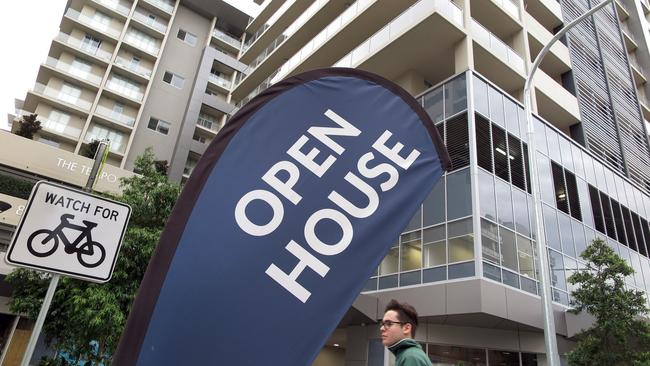Negative equity makes it a tense time in property
Authorities in China think that Chinese property developers have been cheated in Australia. They might have a point.

Around the politicians and commentators, the current buzz words are “negative gearing”, with discussion centring on the implications of the ALP policy.
But around the banking community, while the ALP’s negative gearing changes represent a long-term hazard, there are two words that currently are invoking far more fear: “negative equity”.
A large number of residential property owners who bought during the last two or three years now owe banks more than their property is worth. That makes bankers incredibly nervous.
Not surprisingly the words “negative equity” are rarely mentioned by bankers. When they’re raised, it’s in a whisper.
The widely quoted property price averages produced by CoreLogic and others indicate a moderate fall in Sydney and Melbourne dwelling prices, but those averages mask much bigger falls in specific markets.
The horrible truth is that around 15 to 20 per cent of relatively recent buyers of inner-city Sydney apartments, as well as cottages in badly performing suburbs, have lost their deposit and owe more to the bank than the property is worth.
The situation is not much better in Melbourne.
The crisis takes different forms. For the nation the most dangerous is what is happening among the Chinese owners and apartment developers.
But there are also widespread negative equity situations in Australian superannuation (some of which involved fraud) and among the vast number of Australians who believed “bricks and mortar” could be leveraged without risk. Many were encouraged by banks who, until recently had easy credit property policies.
Those who borrowed 90 per cent or more of the purchase price and then watched the street value of their dwelling fall 20 per cent plus (as has happened in Sydney and Melbourne’s small inner-city apartments) are shattered.
If you are a negatively geared investor you are sacrificing your income to create a capital loss — a situation that creates great distress. And banks are demanding investors pay capital as well as interest when their interest-only loan matures. Where the negative equity dwelling is the family home the sacrifices being made to keep up the payments are made even tougher by the regular reports that further price falls are likely.
But Australians owning a residential dwelling traditionally fight hard to keep their home.
The superannuation debt mess is another matter.
As Michael Roddan revealed yesterday, self-managed superannuation funds have borrowed a sickening $39 billion to buy property. Many of the funds were actually set up by real estate sales people on huge commissions. They flogged overvalued apartments to the funds that they helped gullible savers set up for the purpose. The banks who loaned to these specially set up funds are in grave danger of being forced to take any losses because they should have known fraud was involved.
The banks know that if they start selling people out in negative equity situations, they will collapse big sections of the dwelling market and create huge bank losses, as well as driving Australia into a recession.
Each bank is frightened that their rivals will start pulling the rug. But so far there are no widespread sellouts and those in genuine trouble who go to the bank are usually being told that if they can keep up the interest payments, the bank will not sell them up.
It’s a tense time.
The apartment negative equity losses are dominated by the Chinese. Over the holiday break I encountered a Chinese investor who bought his Sydney apartment four years ago for $850,000. He recently sold out for $800,000. At the peak it was worth well over $1 million and he was doubling his equity.
It’s vital for the inner-city apartment market that the Chinese student education market continues to boom because students are a huge part of rental market that enables owners to generate the cash to pay interest.
The Chinese authorities are very unhappy that their citizens have individually gone offshore and lost their money. They are becoming much tougher on allowing more money to leave. And for Chinese developers, the government has been even tougher. Many Chinese developers are being instructed to quit their big apartment land holdings.
It reminds me of the great Japanese sellout of Australian property decades ago.
Chinese government officials often blame Australian authorities and banks for the big developer losses that look like being incurred. The Chinese were huge land buyers at the top of the market.
But there is an element of truth in the Chinese authorities’ view that their big developers have been cheated by Australians. Australian banks made non-binding promises to individual Chinese that there would be easy credit to fund purchases. They broke their word. And the local councils, particularly in Sydney, deliberately increased the costs of building, thus reducing the economics. Victoria kept moving the planning goalposts.
A UBS survey shows that Australia has become less popular among Chinese tourists — a danger sign that the property losses are becoming infectious.




To join the conversation, please log in. Don't have an account? Register
Join the conversation, you are commenting as Logout